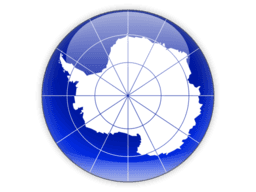
Antarctica is the southernmost continent on Earth, located almost entirely within the Antarctic Circle. It is the fifth largest continent by area and has no permanent human population, although scientists and support personnel from various countries reside there for research purposes. The continent is governed by the Antarctic Treaty System, which was signed by 53 countries and regulates the use of the continent for scientific research and other peaceful purposes.
Antarctica is the coldest continent on Earth, with temperatures reaching as low as -128.6°F (-89.2°C). It is also the driest continent, with little precipitation and most of the land covered by ice that averages over 1 mile (1.6 km) thick. The ice sheets contain about 70% of the world's fresh water, making Antarctica an important part of the global water cycle.
Despite its harsh climate, Antarctica is home to a variety of unique species adapted to the extreme conditions, such as penguins, seals, and several species of birds. The continent also contains important geological features, such as the Gamburtsev Mountain Range, which was discovered only in 2008, and Lake Vostok, one of the largest subglacial lakes in the world.
Antarctica has a short summer season, during which research stations are resupplied and scientists conduct their research. Many countries maintain research stations on the continent, with the largest being the United States' McMurdo Station, which can house up to 1,200 personnel during the summer season. The continent is also an important site for scientific studies of climate change, with researchers studying ice cores, atmospheric chemistry, and ocean currents to better understand how the Earth's climate is changing.
Mark Antarctica as Visited
Add Antarctica to your personal travel map and track your journey around the world. Share your adventures and see your progress grow!